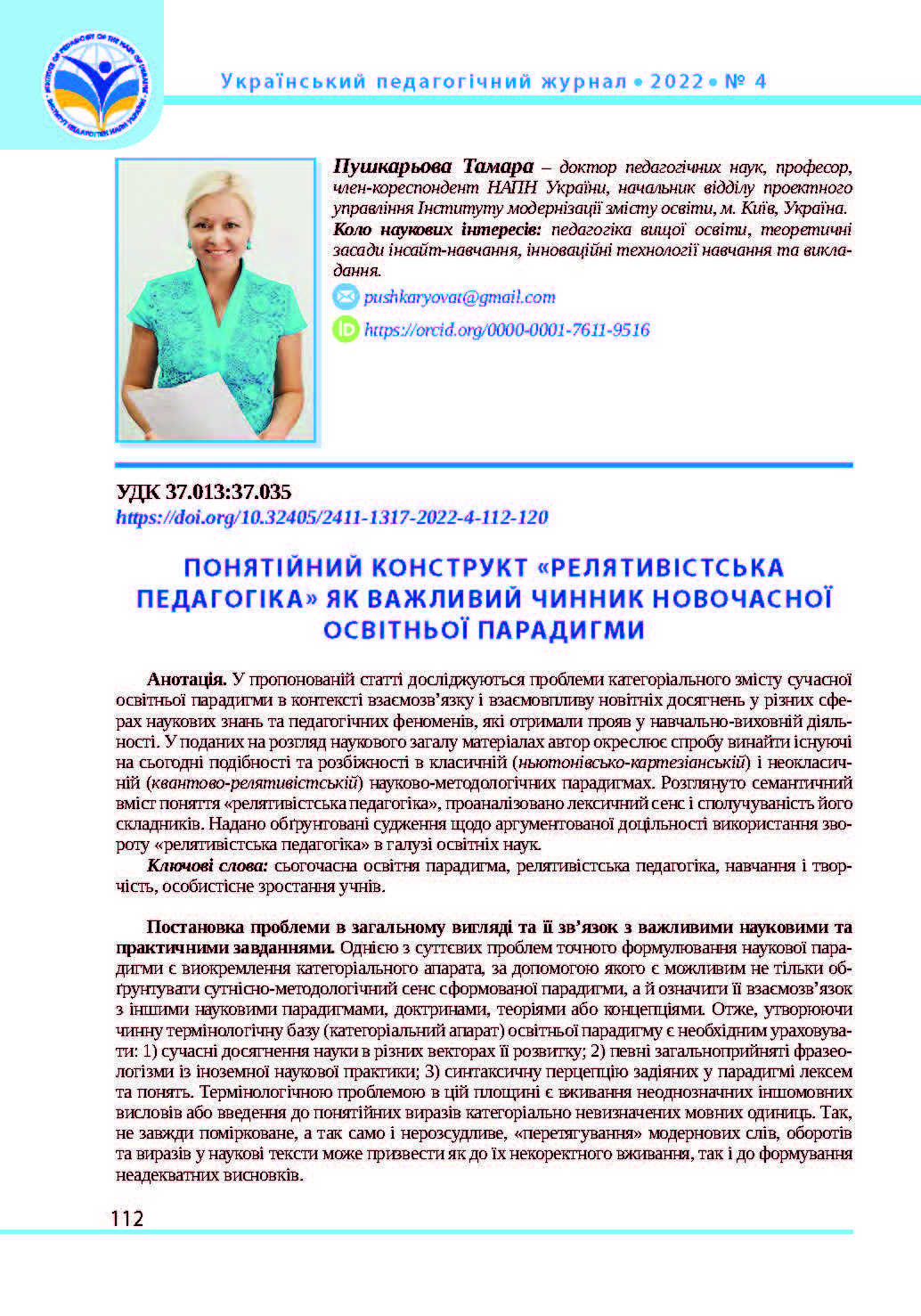Анотація
У пропонованій статті досліджуються проблеми категоріального змісту сучасної освітньої парадигми в контексті взаємозв’язку і взаємовпливу новітніх досягнень у різних сферах наукових знань та педагогічних феноменів, які отримали прояв у навчально-виховній діяльності. У поданих на розгляд наукового загалу матеріалах автор окреслює спробу винайти існуючі на сьогодні подібності та розбіжності в класичній (ньютонівсько-картезіанській) і неокласичній (квантово-релятивістській) науково-методологічних парадигмах. Розглянуто семантичний вміст поняття «релятивістська педагогіка», проаналізовано лексичний сенс і сполучуваність його складників. Надано обґрунтовані судження щодо аргументованої доцільності використання звороту «релятивістська педагогіка» в галузі освітніх наук.
Посилання
Бичко, І. (2002). Свідомість. Філософський енциклопедичний словник. Київ: Абрис.
Білодід, І.К. (ред.). (1978). Словник української мови: в 11 т. Т.8. Київ: Наукова думка.
Вознюк, О.В. (2013). Розвиток особистості педагога в умовах цивілізаційних змін: теорія і практика. Монографія. Житомир: Вид-во ЖДУ ім. Івана Франка..
Гусєв, В. (2010). Феномен свідомості та сучасна наука. Наукові записки НаУКМА. Серія: Філософія та релігієзнавство. (102), 3‒12.
Лабенко, О.В. (2017). Проблеми змін наукової парадигми в методиці викладання курсу «Соціальна робота у сфері дозвілля». Наукові записки. Проблеми методики фізики-математичної і технологічної освіти. Кропивницький: КДПУ ім. В. Винниченка. (11). Ч. 4. 158‒162.
Морозов, О.Ф. (2016). Об’єктивність редукції людської свідомості в матеріальні економічні цінності. Економіст. (1). 4‒9.
Павлов, О.І. (2016). Сутність теоретичних засад руралістики: понятійно-категоріальний апарат. Економіка АПК. (5). 30‒37.
Свириденко, Б. (2002). Релятивізм. Філософський енциклопедичний словник. Київ: Абрис.
Скопненко, О.І., Цимбалюк, Т.В. (ред.). (2006). Сучасний словник іншомовних слів. Київ: Довіра.
Шапран, О.І. (ред). (2016). Сучасний психолого-педагогічний словник. Переяслав-Хмельницький: Домбровська Я.М.

Ця робота ліцензується відповідно до Creative Commons Attribution-NonCommercial-ShareAlike 4.0 International License.


